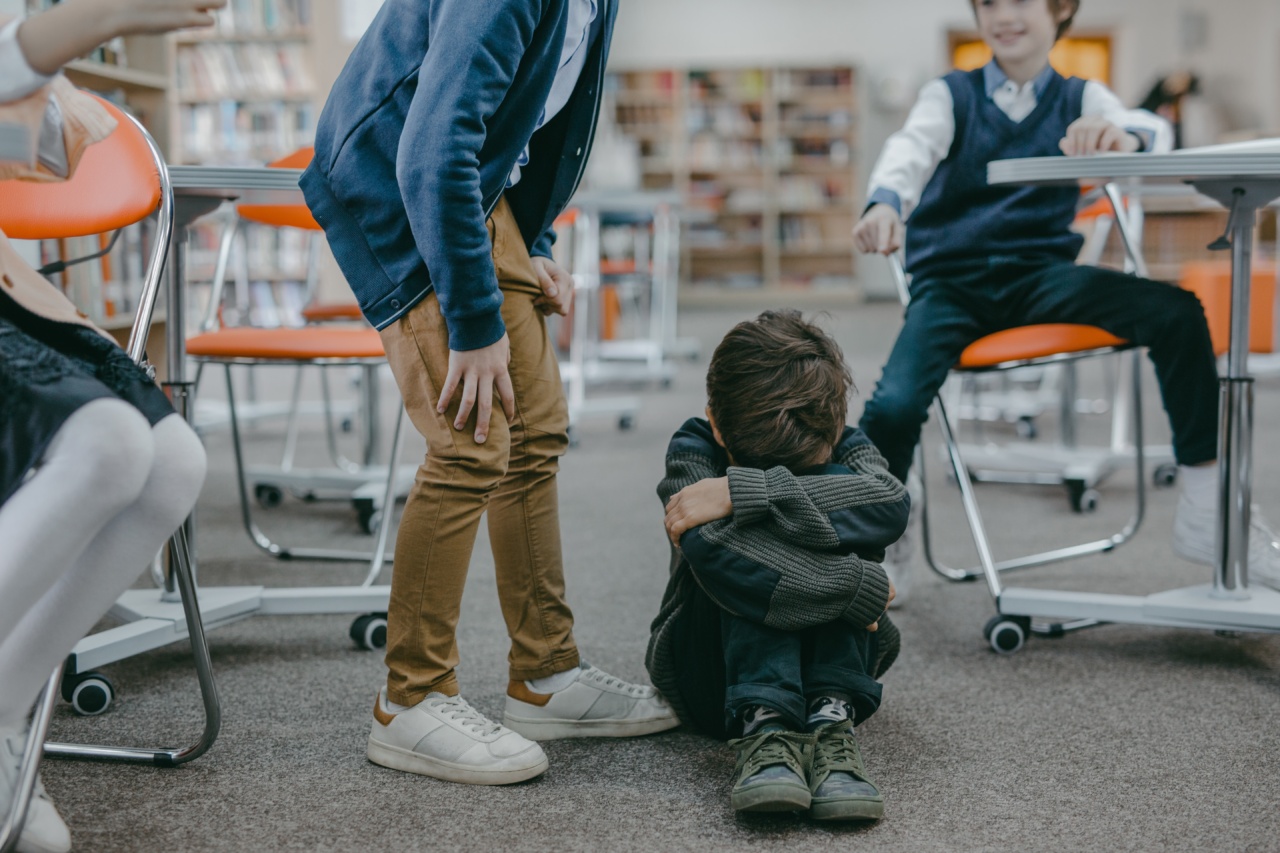Bullying is a serious issue that can have long-lasting effects on children. It is important for parents to be aware of the signs of bullying in their child so they can take action to stop it.
Bullying can take many forms, including physical, verbal, and emotional abuse, and can happen at school, online, or in other social situations. Here are some signs to look out for:.
1. Physical Symptoms
If your child is being physically bullied, you may see bruises, cuts, or other injuries that cannot be explained. They may also complain of headaches or stomachaches on school days or be reluctant to go to school altogether.
If your child suddenly starts coming home with torn or dirty clothing, it could be a sign that they are being physically bullied.
2. Emotional Distress
Bullying can take a toll on a child’s emotional well-being. If your child seems to be more anxious or depressed than usual, it may be a sign that they are being bullied.
They may also become withdrawn and avoid social situations or activities that they used to enjoy. If your child suddenly loses interest in school or their grades start to slip, bullying could be the root cause.
3. Disrupted Sleep Patterns
Children who are being bullied may have trouble sleeping and may experience nightmares. If your child seems tired and irritable during the day, it could be a sign that they are not getting enough sleep due to bullying.
They may also have trouble falling asleep or wake up frequently during the night.
4. Changes in Social Behavior
If your child used to have a close group of friends and suddenly starts spending more time alone, it could be a sign of bullying. They may also start hanging out with a different crowd or seem to be avoiding certain people.
Bullied children may feel embarrassed or ashamed of what is happening to them and may isolate themselves from others as a result.
5. Sudden Mood Swings
Bullying can cause children to have sudden mood swings that seem out of character. They may become angry and lash out at others or become overly emotional and cry frequently.
If your child seems to be experiencing extreme highs or lows, it could be a sign that they are being bullied.
6. Unexplained Loss of Items
If your child suddenly starts losing possessions like books, toys, or clothing, it could be a sign that they are being bullied. Bullies may take or destroy your child’s belongings as a way to intimidate them or gain power over them.
7. Avoiding Certain Places or Activities
If your child seems to be avoiding certain places or activities, it could be a sign that they are being bullied in that environment. They may also complain of not feeling safe in certain areas or tell you that they are scared to go to certain places.
8. Being Bullied Online
In today’s digital age, bullying can happen online as well. If your child seems to be spending a lot of time on their phone or computer and becomes upset or angry when you ask about it, they could be experiencing cyberbullying.
They may also seem anxious or upset after using social media or other online platforms.
9. Physical Changes
If your child suddenly starts losing weight, not eating or overeating, it could signal that they are being bullied. Their appetite may decrease due to stress or anxiety, or they may start comfort eating to cope with the emotional impact of bullying.
They may also have trouble sleeping or experience changes in their personal hygiene habits.
10. Complaints about Other Children
If your child frequently complains about other children being mean to them or singling them out, it could be a sign that they are being bullied. They may also start making negative comments about themselves or feeling like they are not good enough.
It is important to take these complaints seriously and to look into the situation to determine if bullying is occurring.






























